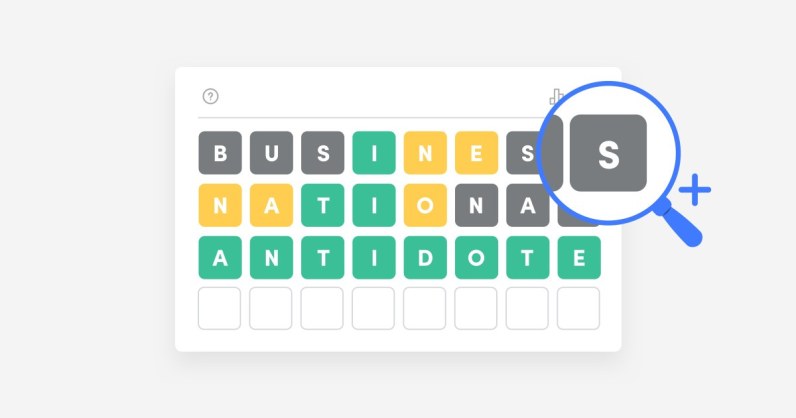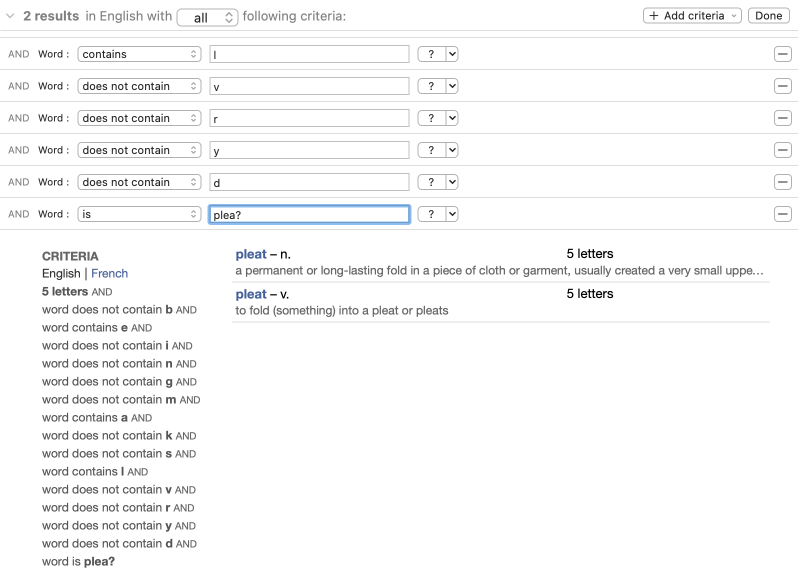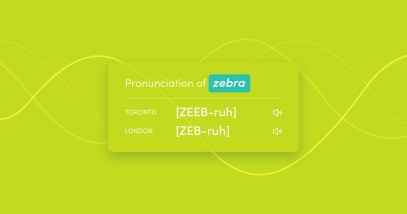Wordle: How to Find the Answer Every Time

Are you familiar with Wordle? This language game is incredibly simple: guess a 5-letter word in a maximum of 6 tries. Like Mastermind, at each turn, a colour code indicates whether the letters are in the right place, should go elsewhere in the word, or are simply not in the target word at all.
Fans of the American game show Lingo with Bill Engvall will recognize this gameplay, which dates back to the first version of the show broadcast in 1987.
As to the dazzling success of the online game, it can be explained, among other things, by its accessibility and its formula: there is only one puzzle per day and it’s the same for everyone who participates, so you can share your results to compare them with those of others.
If you ever need a hand to start the game or to solve it, Antidote’s powerful dictionary search engines are at your disposal. Here’s how to use them wisely.
Listing Five-Letter Words
In Wordle, each game is based on a 5-letter word. If you need inspiration for your initial guess, use the advanced search to view words with a specific number of letters.
Click the magnifying glass icon () to add the search filter Number of letters, then specify equals and enter 5.

By default, Antidote ranks the results by relevance. That is, the most frequent words first. It is therefore not that surprising to see take on the first page of results. Doesn’t take have only four letters? Indeed, but some of its inflections do have five. Under the verb take, you will find takes, and taken.
If you prefer to remove inflections from the results, uncheck the box in the left column.
You can even create a favourites list composed of five different letters, because the variety of letters will give you an advantage at the start of the game.
Filtering the Results Between Tries
Disclaimer: From here on, the tips we show you give far more specific results. Use them wisely to get out of a dead end rather than finding the answer directly, which would take all the fun out of the game!

With the search by criteria function in the Antidote dictionaries, you can filter results according to both letters that are present and letters that are absent in the word. After a guess in the game, bring back the clues discovered by the colour codes. Then choose a new word to try from the new list of results.
Let’s look at an example. For a green or yellow letter, we use the criterion Word with the parameter contains; for a gray letter, does not contain. After each try, we add one or more criteria.
To speed up this process, you can even tell Antidote the precise position of a letter in green, thanks to the search with variables, described in the next section.
Once we’ve entered the search criteria after the fourth try, only one word remains in the results list, whereas the initial search for five-letter words turned up more than 10,000 results. This is a great example of the search power of Antidote’s dictionaries! It’s also the somewhat dishonest recipe for success every time. 😈
Searching With Variables: An Additional Advantage
Antidote has another very useful tool: search with variables. This can help you when you already know the position of certain letters.
We used “plea?” after the fifth try in the example above. A question mark “?” replaces a single character. The asterisk “*” represents a series of characters, i.e. any letter or any group of letters. So, if we had succeeded in confirming the position of the e from the beginning with the word pleat for example, we could have, after the first try, typed “??e??” or “*e*”. There are many ways to arrive at the correct answer!
That being said, the choice to use these search tips in your daily game or not is yours. It’s up to you to draw the line between hinting, troubleshooting... and cheating. Happy puzzling!
Get the latest edition of Antidote!
Visit the web store



